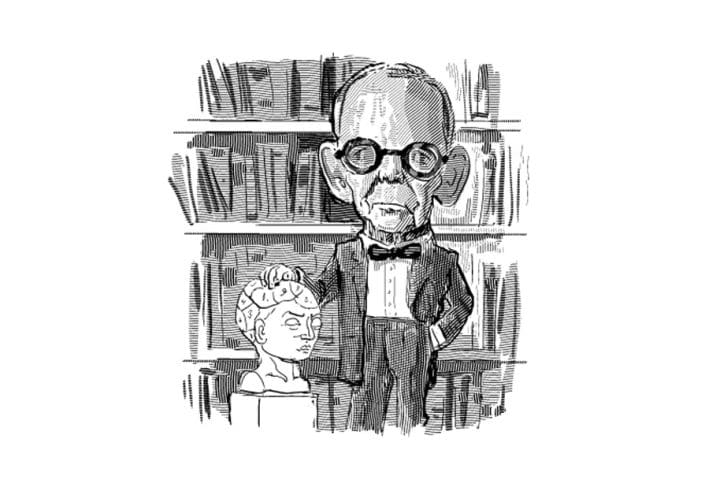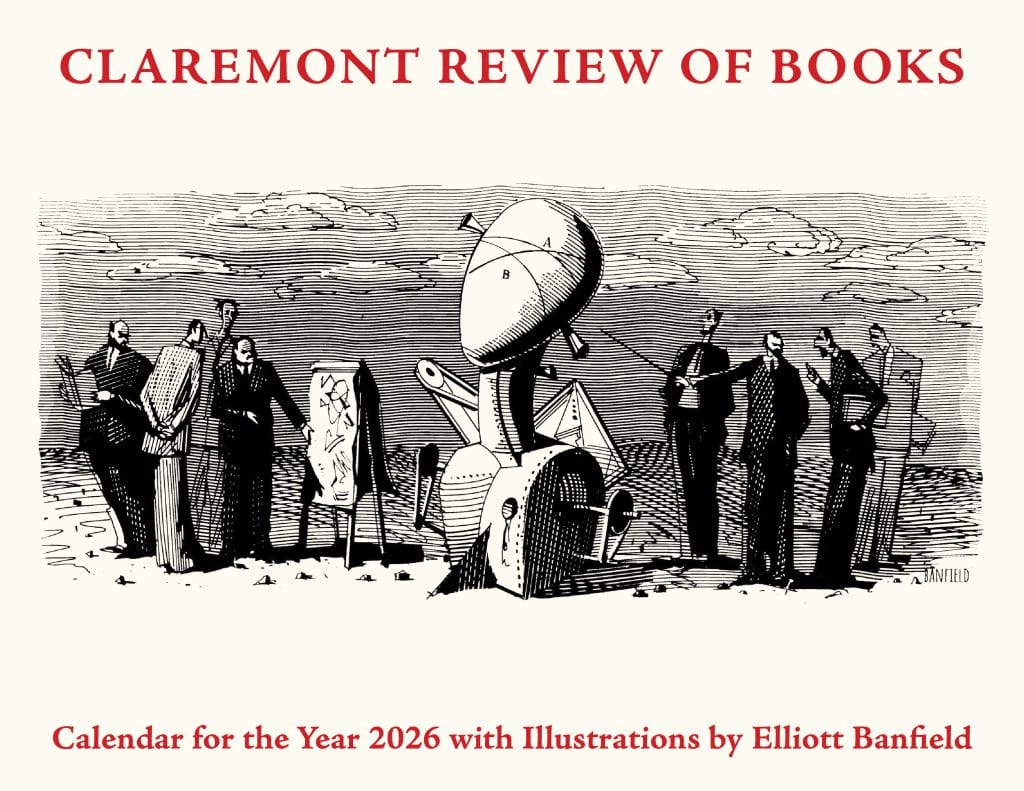When George Anastaplo died on February 14, 2014, he was a distinguished professor at the Loyola University Law School and in the Basic Program in the Liberal Arts at the University of Chicago. He was also a professor emeritus at Dominican University (formerly Rosary College).
A son of Greek immigrants, Anastaplo grew up in southern Illinois. He served in World War II as a U.S. Army Air Corps navigator, flying bombing missions in North Africa and Europe. After the war, he entered the University of Chicago, where he earned his B.A. and his law degree.
Although he graduated number one in his class at the University of Chicago Law School in 1950, he was refused admission to the Illinois Bar, because the Bar’s Committee on Character and Fitness was disturbed by his affirmation of the right to revolution as stated in the Declaration of Independence and by his refusal to answer questions about whether he was a member of the Communist Party. He said that such questions were inappropriate and unconstitutional. The questions were also unjustified because no one had any reason to believe he was a Communist.
When Anastaplo appealed this decision to the Illinois Supreme Court, he lost. Later, he appealed to the U.S. Supreme Court and argued his own case before the Court, but once again he lost (by a 5-4 decision). In this case—In re Anastaplo (1961)—Justice Hugo Black wrote an eloquent dissenting opinion. Justice William Brennan told Black that his opinion would “immortalize Anastaplo.” As suggested by Black’s son, an excerpt from this opinion was read at Black’s funeral in 1971 at Washington National Cathedral. The last line of the opinion was, “We must not be afraid to be free.”
His bar admission case was only the first in a series of tense confrontations provoked by Anastaplo’s challenges to unjustified authority. While traveling in Russia in 1960, Anastaplo was arrested and then expelled from the country. He was also expelled from Greece in 1968, because he had questioned the rule of the military junta in power. This led political scientist C. Herman Pritchett to observe: “As W.C. Fields might have said, any man who is kicked out of Russia, Greece, and the Illinois Bar can’t be all bad.”
Since he could not practice law, he drove a taxi in Chicago for a few years to make a living. He then returned to the University of Chicago to work on his doctorate in the Committee on Social Thought and to teach in the Basic Program. His dissertation become the basis for The Constitutionalist: Notes on the First Amendment (1971), the first of his 20 books.
* * *
At the University of Chicago, he came under the influence of two teachers who shaped his whole life—William Crosskey and Leo Strauss. Crosskey’s classes at the Law School were organized around the meticulous interpretation of the Constitution to find its original meaning, which was often identified by Crosskey as very different from what was assumed in many Supreme Court decisions. In particular, he argued that the constitutional text established the supremacy of the United States Congress in exercising a general legislative power over the nation. He was best known for arguing that the Constitution gave Congress a national power over commerce that was more sweeping than the power over “interstate commerce” as interpreted by the Supreme Court.
Like Crosskey, Anastaplo thought that the Constitution was a carefully crafted document that could be understood through a close reading of the text itself, free from the often mistaken interpretations of the Supreme Court. That’s clearest in Anastaplo’s The Constitution of 1787: A Commentary (1989).
In his constitutional reasoning, he emphasized the freedom of speech in the First Amendment, which he thought important because it allowed for appeals to natural right and for the freedom of philosophic thought to enter politics. Here is where Strauss’s influence became crucial.
Anastaplo attended all of Strauss’s classes at the University of Chicago, from 1949 to 1967. He was attracted by Strauss’s rigor in the close reading of texts in the history of political philosophy. There was a methodological similarity between Strauss’s philosophical textualism and Crosskey’s constitutional textualism. In fact, Strauss once said to Anastaplo that he had heard that Crosskey read the Constitution the way he, Strauss, read Plato.
While many of Strauss’s students identified themselves as political conservatives, Anastaplo did not. In 1964, some of Strauss’s students publicly endorsed the presidential campaign of Barry Goldwater, and Anastaplo objected that it was a mistake to suggest that Strauss’s work supported a politically partisan position.
From Strauss, Anastaplo picked up the two major themes that run through most of his writing—nature and prudence. He argued that the prudent person judges how best to fulfill the enduring inclinations of human nature within the historical conditions in which he finds himself.
* * *
Anastaplo thought through these ideas of nature and prudence by seeing how they arise in the great texts of politics, philosophy, science, history, mathematics, theology, art, and literature. Five texts were especially important for him—Plato’s Apology of Socrates, the Bible, the Declaration of Independence, the Constitution of the United States, and the writings of Abraham Lincoln.
During the last weeks of his life, he was calm and thoughtful in preparing for his death. One might have been reminded of his essay on death in his book Human Being and Citizen (1975), in which he wrote: “Death, if faced up to—if not concealed by euphemisms and cosmetics—should remind us of the natural terms of living things and hence of nature and of models for a good life, models that do not depend on one’s individuation but rather on one’s approximation to a standard guiding other men as well.”
One might also have been reminded of Adam Smith’s report about David Hume’s death, in which Smith concluded: “Upon the whole, I have always considered him, both in his lifetime and since his death, as approaching as nearly to the idea of a perfectly wise and virtuous man, as perhaps the nature of human frailty will permit.”





